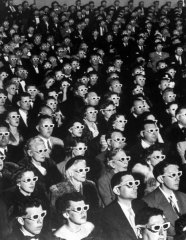Jan 15 2010
Green is the New Spectacle
By Jason Slade
Originally published in the Nor easter
The Spectacle
Environmental issues can oftentimes be very complex. Some issues directly relate to climate change, and some do not. However, it is very important to connect the dots between issues because almost all environmental problems are caused, at their base, by capitalist expansion, commodification and privatization. Corporations have used the climate crisis and growing public concern about environmental issues to their advantage. They have learned to use the rhetoric of environmentalism to justify extremely oppressive projects whose sole purpose is to increase their power and to continue the cycle of production and consumption. Incredibly destructive projects, such as hydrofracture natural gas extraction in Upstate New York, are marketed as clean. This absurd spectacle must be stopped.
In Guy Debord’s Society of the Spectacle, he writes, “The spectacle presents itself simultaneously as all of society, as part of society, and as instrument of unification … The spectacle grasped in its totality is both the result and the project of the existing mode of production. It is not a supplement to the real world, an additional decoration. It is the heart of the unrealism of the real society. In all its specific forms, as information or propaganda, as advertisement or direct entertainment consumption, the spectacle is the present model of socially dominant life … It is the sun which never sets over the empire of modern passivity. It covers the entire surface of the world and bathes endlessly in its own glory.” And now the light of that sun is green. The green spectacle is confronting the climate crisis with hollow solutions presented to us in a pleasant, prefabricated package that can be bought if we can afford them and allow us to pollute in good conscience. In an absurd twist, these corporate false solutions cause the poor, and those who resist these schemes, to be blamed for destroying the planet. “It is not the oil companies who are to blame for climate change, but the poor who do not buy carbon offsets when they travel.” Thus, the climate crisis becomes another way to make money and increase corporate power. Read More
